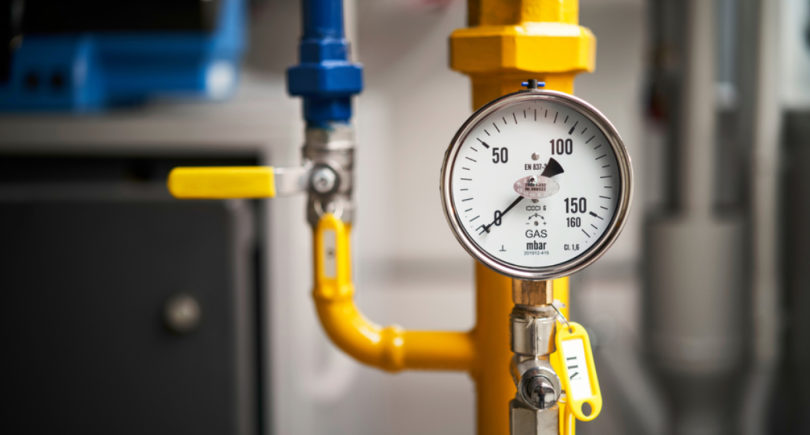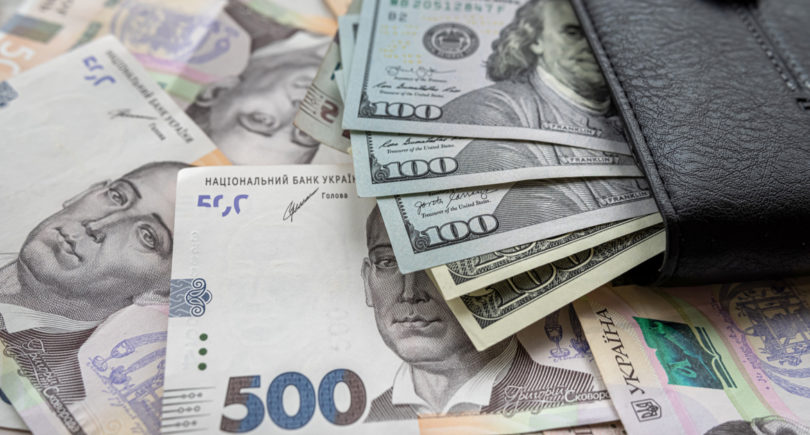
Posts State tax policy 3777 01 October 2024
Amendments are still being made to the draft law, which may further increase the tax burden on the economy
On September 17, the Verkhovna Rada adopted as a basis the updated version of draft law No. 11416-d dated August 30, 2024 on raising taxes. The first vote on September 3 was failed – only two votes were not enough.
The current version of the bill provides:
- increase in the military levy from 1.5% to 5%;
- the establishment of a military levy in the amount of 1% for taxpayers of the single tax of the 3rd group (individual entrepreneurs (IEs) and legal entities), for 1st, 2nd and 4th groups of IEs – 10% of the minimum salary;
- advance payments for gas stations;
- 50% tax on bank profits in 2024 and 25% tax on non-bank financial institutions;
- introduction of monthly income tax reporting (for starting «economic reservation»).
The document provides for additional tax revenues in the amount of UAH 58 billion this year, including UAH 27 billion each from the increase in the military levy and bank tax, and UAH 137 billion in 2025.
In the course of work on the draft law, the planned volume of additional revenues either fell or sharply increased. So, after the announcement of the draft law in July and a flurry of criticism (the document was prepared without discussion with business), the Ministry of Finance refined it. An increase in VAT, a 1% turnover tax for legal entities, an increase in the tax rate for banks to 50% were removed from the draft law (this was the categorical position of the Ministry of Finance and the National Bank of Ukraine, but it was later returned to the text for the repeated first reading) and many other consumer fees (5%, 15%, and 30% when selling real estate, cars, and jewelry, respectively, a reduction in tax-free parcels from €150 to €45). However, this made the document inconsistent with the needs of the state budget, since the planned volume of additional revenues fell sharply – from UAH 125 billion to UAH 30 billion in the current year, in 2025 – to UAH 127 billion instead of UAH 340 billion.
The revenue increase planned in the current version of the bill does not cover all budgetary needs and calls into question the provision of sufficient funding for the army. Back in the summer, the government estimated the additional critical needs of the state budget this year at 500 billion UAH, including 495 billion UAH for defense. Many experts in the public discussion proposed various sources of covering the budget deficit, not based on increasing the tax burden on the economy.
Since Ukraine’s receipt of $50 billion in additional funds from the G7 stalled, the European Union promptly planned the allocation of €35 billion in the form of a grant.
«Then vopros. What is the point of voting for No. 11416-d and raising taxes, if they give us 15 times more money in the budget for free than they can collect from business?», economic expert Danyil Monyn asks rhetorically.
The key problem of the draft law is the violation of the principle of stability of the tax legislation, when the norms should come into effect in six months (the clauses of this draft law will be launched immediately and even retroactively). Violation of this principle actually puts an end to the attractiveness of Ukraine for domestic and foreign investors.
Impact on the economy
The adoption of bill No. 11416-d can lead to many negative consequences for the entire Ukrainian economy, including the following main ones:
1. Reduction of economic activity (as a result of any increase in taxes).
2. Increased fiscal pressure on “white” business.
«Any additional taxation of bona fide business, including an increase in the military levy, can distort the competitive environment, since it will become economically unprofitable to work «in the white». Companies that remain in the shadow sector of the economy receive economic advantages compared to companies that pay taxes,» the European Business Association emphasizes.
3. The rise in consumer prices and inflation due to the transfer of new tax costs by business to end consumers.
4. Reduction of consumer demand due to the decrease in income of the population.
From a salary of 20 thousand hryvnia wage earner will pay 5% of the military levy – 1000 hryvnias per month. And this is in addition to the 18% personal income tax. A positive point is that this norm will be in effect until the end of the year, in which martial law will be abolished.
5. Expansion of the shadow sector, in particular “black” and “gray” employment due to the increase in tax pressure on business.
According to Advanter Group research, in the event of an increase in the military collection, the volume of shadow schemes on the market may increase by an average of 30%.
«The growth of the tax burden on micro- and small entrepreneurship is a factor in the tenization of the economy and its oppression. And entrepreneurs are now working more in the mode of self-employment, rather than increasing income,» notes Olexiy Kush, a financial analyst at the analytical center «United Ukraine».
What to do?
There are reserves for increasing tax revenues, since, according to some estimates, the state budget does not receive about UAH 400 billion per hour from the shadow sector. This amount corresponds to the volume of additional funds that are currently lacking in the state budget. In this regard, it is necessary to take the following additional measures:
- strengthening the fight against the shadow economy, seeking additional sources of budget revenues by detenization;
- the introduction of stricter control of state expenditures;
- rejection of unnecessary projects, reduction of non-defense expenditures;
- increasing the efficiency of the work of the tax service.
«A more rational solution was the search for reserves due to the increase in the efficiency of the control bodies, the destruction of existing tax evasion schemes (smuggling, counterfeit production, illegal trade, informal employment, etc.), the automation of business processes and a temporary increase in the rates of already existing taxes. Also, an important solution would be to reduce the secondary expenses of the state budget,» says the joint appeal of the leading analytical centers of Ukraine.
Prospects for the bill
Probably, the document will still be amended, which may be in the direction of increasing taxes. Yes, it is possible to return VAT, although this is an unfavorable decision for the authorities due to the increase in consumer prices and inflation, but it is an easily administered tax and its increase by 2-4 percentage points will have a tangible effect. Moreover, the IMF insists on an increase in VAT from 20% to 22%, whereas the Cabinet of Ministers previously planned an increase of 3-4%. This decision will negatively affect the entire economy.
For its part, the Ministry of Finance plans to look for additional options for filling the state budget, in particular by increasing domestic borrowing to the amount of almost UAH 400 billion and reducing non-priority expenditures.
The second reading of the document will take place in mid-October, but if adopted, the law will probably enter into force retroactively – from October 1. It is difficult to say what the bill will be in the final version. Significant changes may still be made to the document. For example, Yaroslav Zheleznyak, the first deputy chairman of the Parliamentary Committee on Finance, Tax and Customs Policy, will submit two amendments to the second reading – to increase VAT by 2% or to increase the military levy by 1.5% to 3% and VAT by 1%.
«I submit various amendments, and then we’ll see what happens in the working group. There is an idea to reduce the military levy to at least 3%, and as a temporary compensator, there may be an increase in VAT,» said the People’s Deputy in a comment to the GMK Center.





